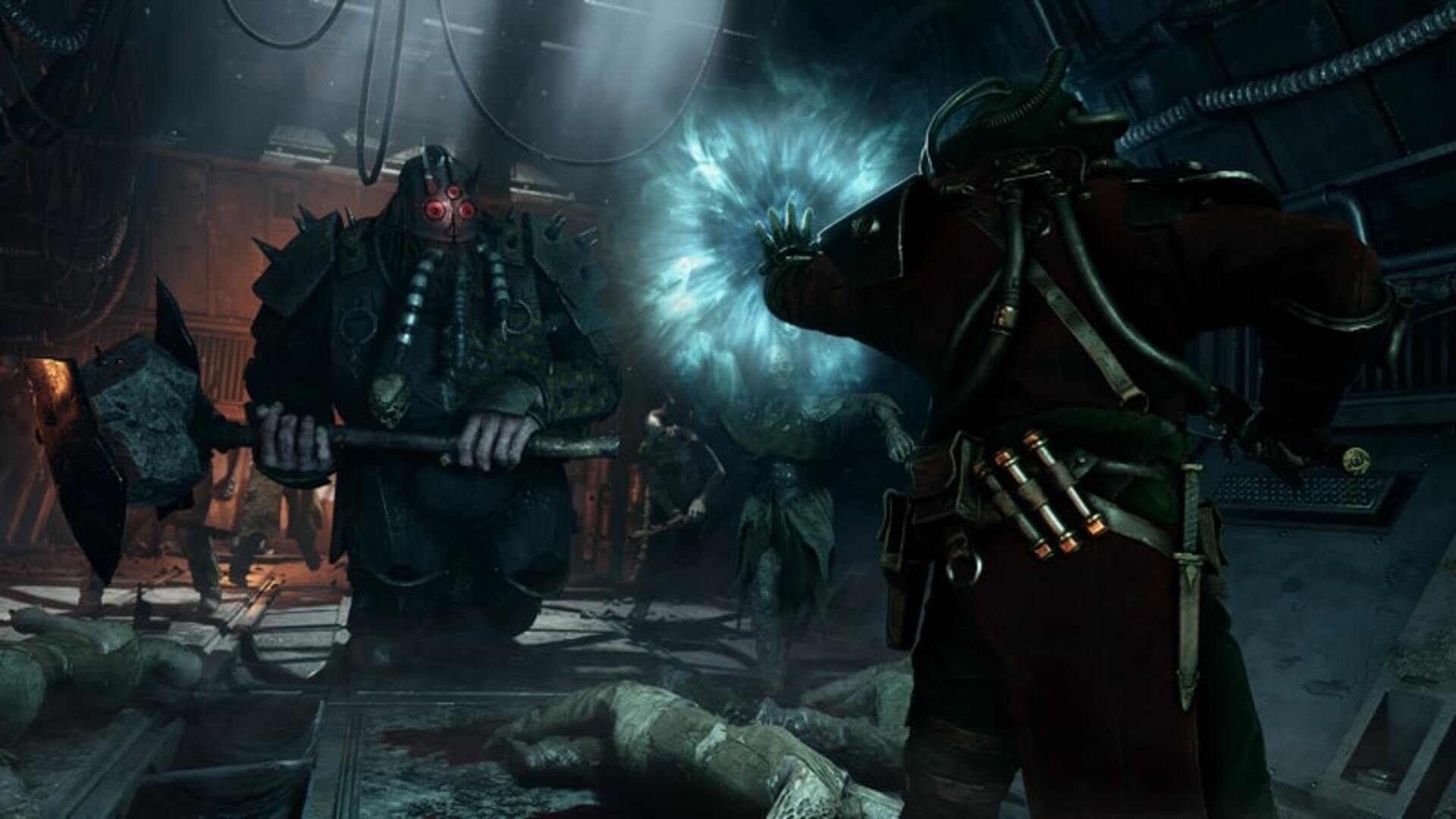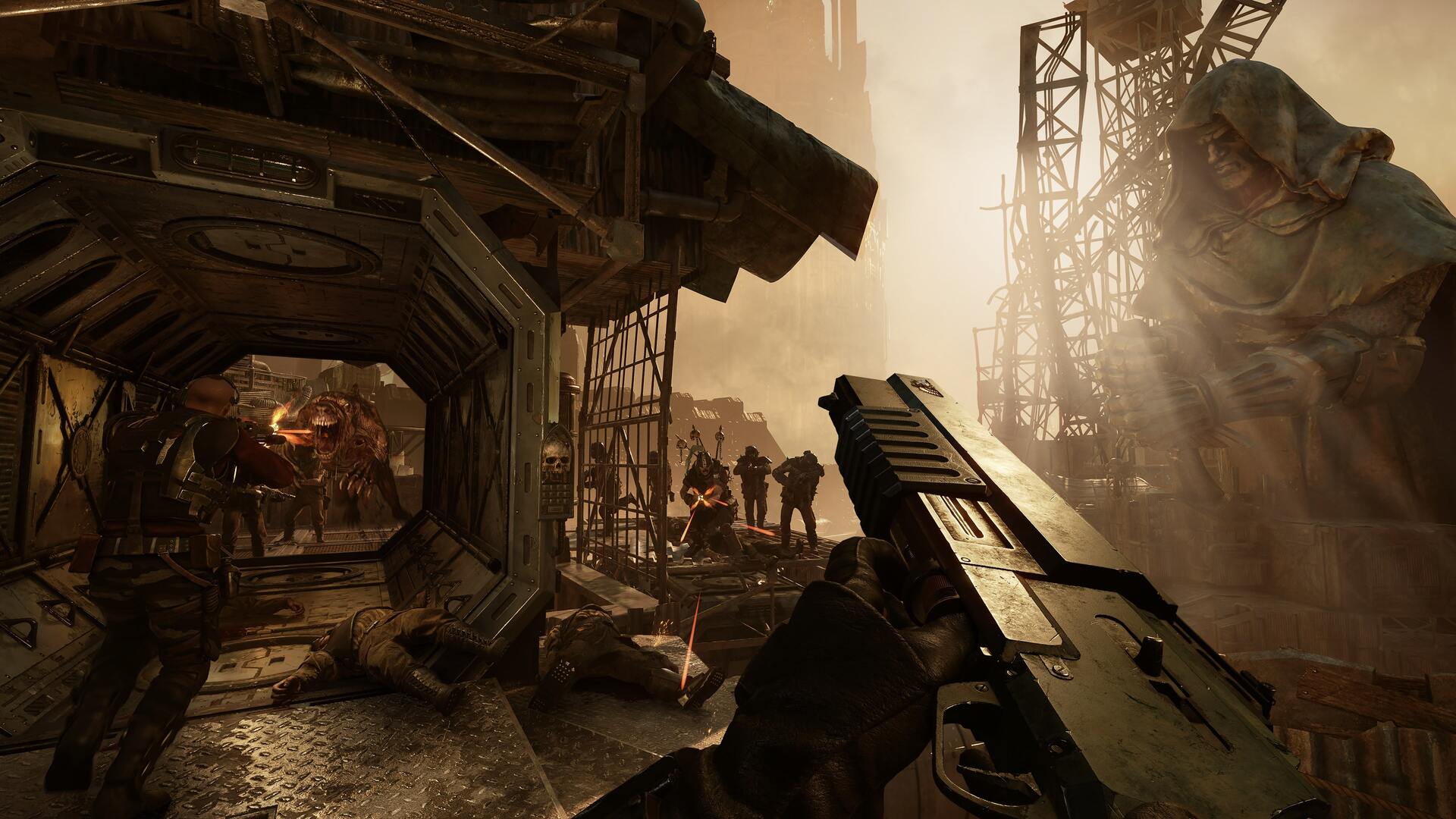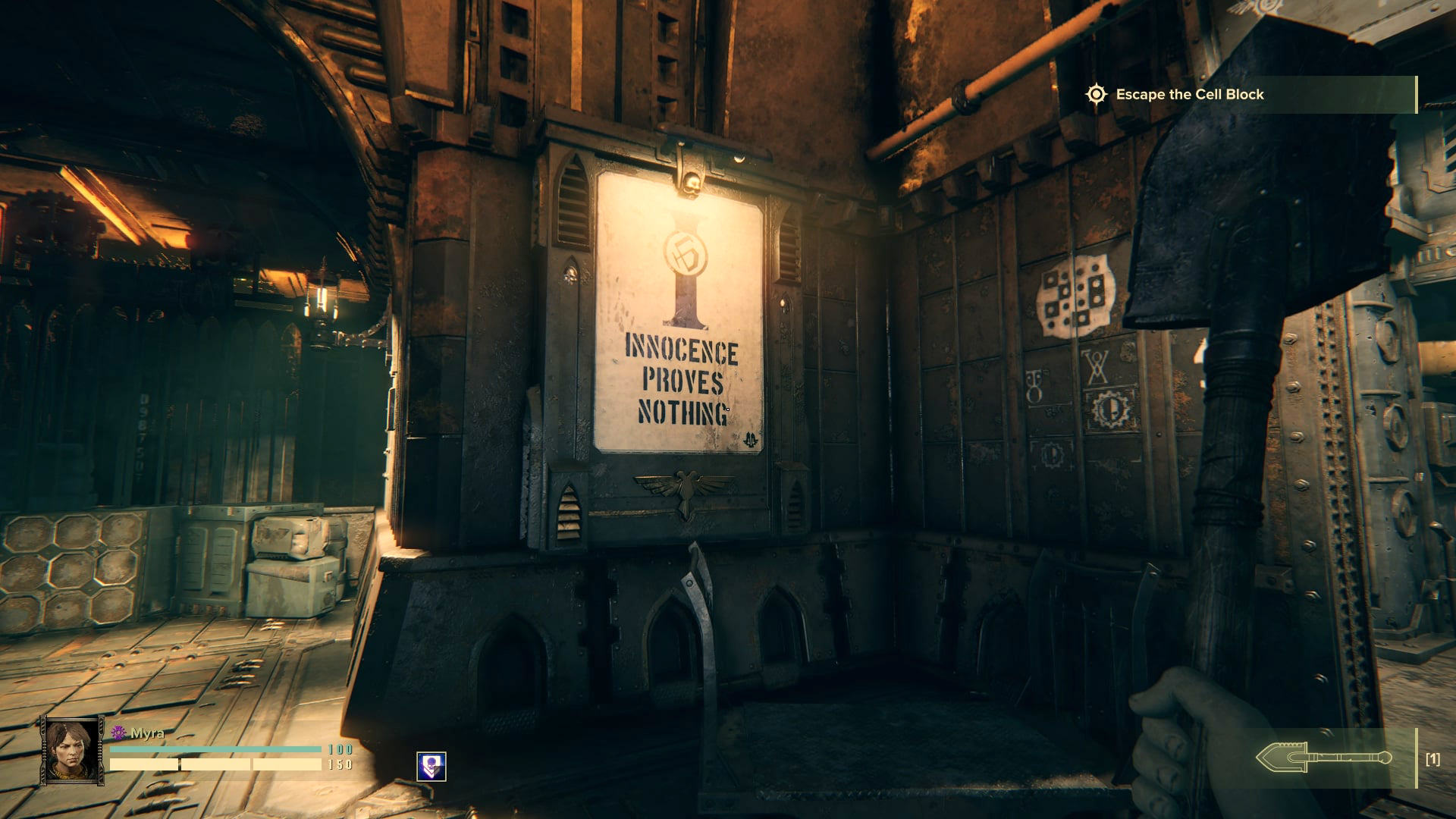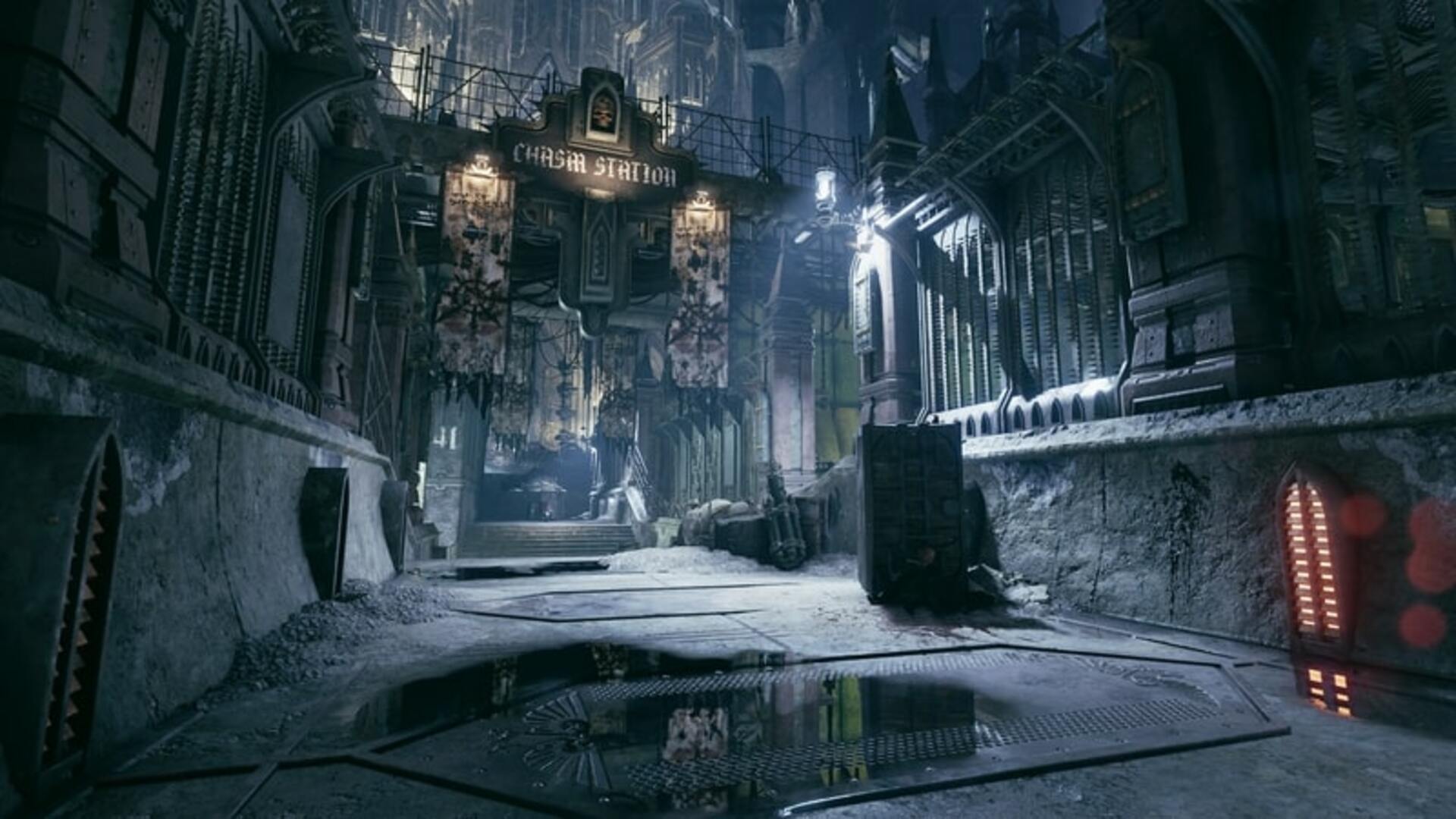Co-op shooter Darktide taught me that I’m right to leave my friends to die, soz
Life is the Emperor’s currency

The strike team is in trouble. We’re surrounded on all sides. Plague zombies and enemy soldiers are all around us. Over Discord, I hear my teammate yell out. A Trapper, one of the elite enemies in Darktide, has encased him in an electrified net. In an instant, our left flank collapses.
It’s now or never. Despite being a fragile Psyker (read: cursed space witch), I draw my sword and rush forward, eager to carve a path to my fallen comrade. Without him holding the flank, the mission will fall apart. With a series of deft thrusts, shoves, and parries, I make my way through the horde of plague zombies. I’m almost there. I lean down to help him up.
At that moment, I hear a blade drive into my character’s back as she collapses, too. I had overextended. In seeking to solve our problem, I’d only doubled it. With two teammates out of action, the rest of the strike team quickly folded. My hubris had killed us all. As the defeat screen was keen to remind us: we had failed the Emperor.
Moments like this are the magic behind relentless gothic fever dream Darktide, Fat Shark’s latest sci-fi co-op survival game. Set in the grim darkness of the Warhammer 40,000 universe, Darktide has you take on the role of an expendable soldier working for the dystopian Imperium of humanity. Pressganged by the Inquisition (the Imperium’s secret police) you and three other unfortunates take on missions with the aim of reclaiming a ruined sci-fi megacity from the hands of cultists and the eldrich abominations they serve.
Trolley problems

Though the grim darkness of the far future leaves little room for ethics, philosopher Philipa Foot once posed a thought experiment that has become a shorthand for difficult moral calculus. Dubbed “The Trolley Problem”, Foot asked whether or not it was better to pull a switch to divert a runaway trolley such that it would only run over a single person, rather than the five that were initially in the trolley’s path. The problem asks you to measure up the exact value of life. In true grim dark fashion, Darktide revisits this problem by asking, almost every few minutes: “Will you pull the lever?”
Darktide is designed from the ground up to be full of tough decisions. You are underresourced, overworked, and under lots of pressure. On missions, this is intensified further. Ammo and healing supplies are scarce, and there always seem to be more monsters or cultists in need of putting down. The constant pressure ensures that your decisions have a real sense of weight behind them. Your actions have consequences and, in the toughest moments, become literally life and death.

How you manage the stream of threats is up to you. As you make your way through the environment to achieve your objectives, you will find yourself needing to commit both yourself and your resources. Take splitting off from the group, for instance. Sometimes, going after some loot or executing a flanking attack can be great choices, but leaving your comrades causes you to lose your coherency buff, a stat bonus you get for being near your allies. Few decisions in Darktide lack interesting drawbacks.
Get daily insight, inspiration and deals in your inbox
Sign up for breaking news, reviews, opinion, top tech deals, and more.
Fat Shark has built a machine that generates trolley problems, and it is beautiful.
More classical problems also present themselves, too. Do you use the medkit now, or save it for when things get really hairy? Should you stay in the rear, where it’s safe, but be forced to burn through heavy bolter ammo to contribute, or get stuck in with a chainsword, exposing yourself to danger? Do you, as I did, break formation to try and rescue a fallen ally, or stay put, committing yourself to dealing with enemy combatants at the expense of your teammate’s life?
These problems are the bread and butter of Darktide and keep the game interesting long after you’ve become familiar with the mission structure and the different classes. Fat Shark has built a machine that generates trolley problems, and it is beautiful.
You shall not be missed

This desperate and frantic push for survival mirrors the Warhammer 40k setting itself. In a galaxy-wide military industrial meatgrinder, the lives of the little people are almost negligible; that is until you’re forced to play as one. The 41st Millennium is an extremely dangerous place. It is trying to kill you, and you must not let it. Doubling down on this theme, Darktide gives you challenging missions, limited resources to achieve your objectives, and a cruel shove out the airlock door.
To play Darktide, especially at higher difficulties, is to fight on a knife edge.
The Warhammer 40k setting is the perfect environment for the kinds of split-second decisions that Darktide demands of you. It is a ruthless, callous setting where human beings are instructed to give their lives for one of the most nightmarish totalitarian regimes imaginable. In the Imperium, life is cheap. However, it still has some value. It must be spent wisely in the Imperium’s interests, after all. This is the calculation that Darktide demands you make. What are the lives of your comrades worth? What is your life worth? What must we lose in order to complete the mission?
Fat Shark’s emphasis on survival-based decision-making perfectly reinforces the themes of the setting. It’s a beautiful confluence and helps make Darktide’s emphasis on split-second player choice feel razor-sharp. To play Darktide, especially at higher difficulties, is to fight on a knife edge, knowing that you’re only one or two bad decisions away from calamity. Should you find yourself battling through Darktide’s bleak, ruined megapolis, let’s hope that the choices you make are, indeed, the right ones.

An editor and freelance journalist, Cat Bussell has been writing about video games for more than four years and, frankly, she’s developed a taste for it. As seen on TechRadar, Technopedia, The Gamer, Wargamer, and SUPERJUMP, Cat’s reviews, features, and guides are lovingly curated for your reading pleasure.
A Cambridge graduate, recovering bartender, and Cloud Strife enjoyer, Cat’s foremost mission is to bring you the best coverage she can, whether that’s through helpful guides, even-handed reviews, or thought-provoking features. She’s interviewed indie darlings, triple-A greats, and legendary voice actors, all to help you get closer to the action. When she’s not writing, Cat can be found sticking her neck into a fresh RPG or running yet another Dungeons & Dragons game.